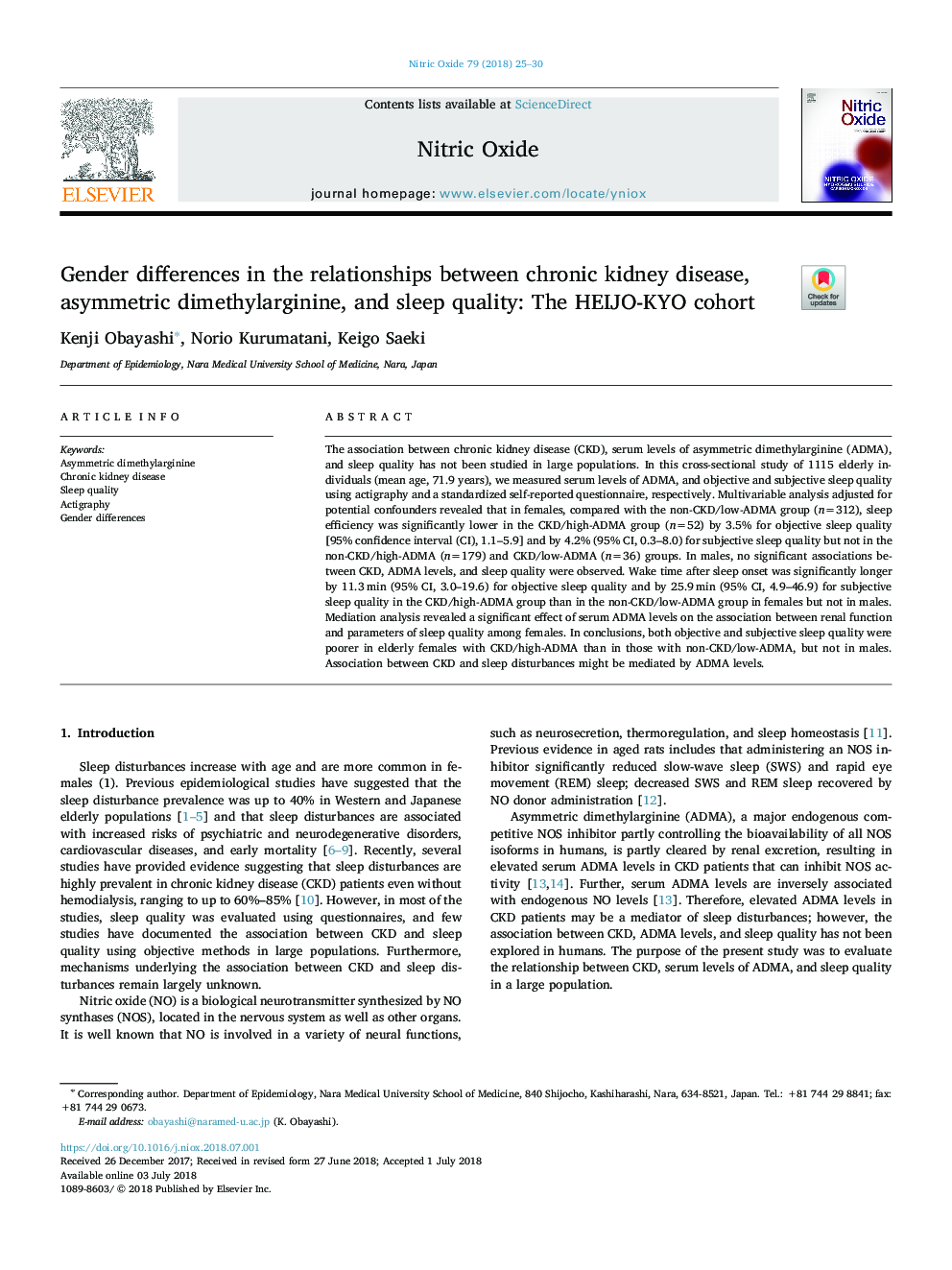| Article ID | Journal | Published Year | Pages | File Type |
|---|---|---|---|---|
| 8344444 | Nitric Oxide | 2018 | 6 Pages |
Abstract
The association between chronic kidney disease (CKD), serum levels of asymmetric dimethylarginine (ADMA), and sleep quality has not been studied in large populations. In this cross-sectional study of 1115 elderly individuals (mean age, 71.9 years), we measured serum levels of ADMA, and objective and subjective sleep quality using actigraphy and a standardized self-reported questionnaire, respectively. Multivariable analysis adjusted for potential confounders revealed that in females, compared with the non-CKD/low-ADMA group (n=312), sleep efficiency was significantly lower in the CKD/high-ADMA group (n=52) by 3.5% for objective sleep quality [95% confidence interval (CI), 1.1-5.9] and by 4.2% (95% CI, 0.3-8.0) for subjective sleep quality but not in the non-CKD/high-ADMA (n=179) and CKD/low-ADMA (n=36) groups. In males, no significant associations between CKD, ADMA levels, and sleep quality were observed. Wake time after sleep onset was significantly longer by 11.3â¯min (95% CI, 3.0-19.6) for objective sleep quality and by 25.9â¯min (95% CI, 4.9-46.9) for subjective sleep quality in the CKD/high-ADMA group than in the non-CKD/low-ADMA group in females but not in males. Mediation analysis revealed a significant effect of serum ADMA levels on the association between renal function and parameters of sleep quality among females. In conclusions, both objective and subjective sleep quality were poorer in elderly females with CKD/high-ADMA than in those with non-CKD/low-ADMA, but not in males. Association between CKD and sleep disturbances might be mediated by ADMA levels.
Related Topics
Life Sciences
Biochemistry, Genetics and Molecular Biology
Biochemistry
Authors
Kenji Obayashi, Norio Kurumatani, Keigo Saeki,
